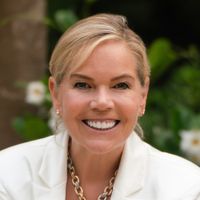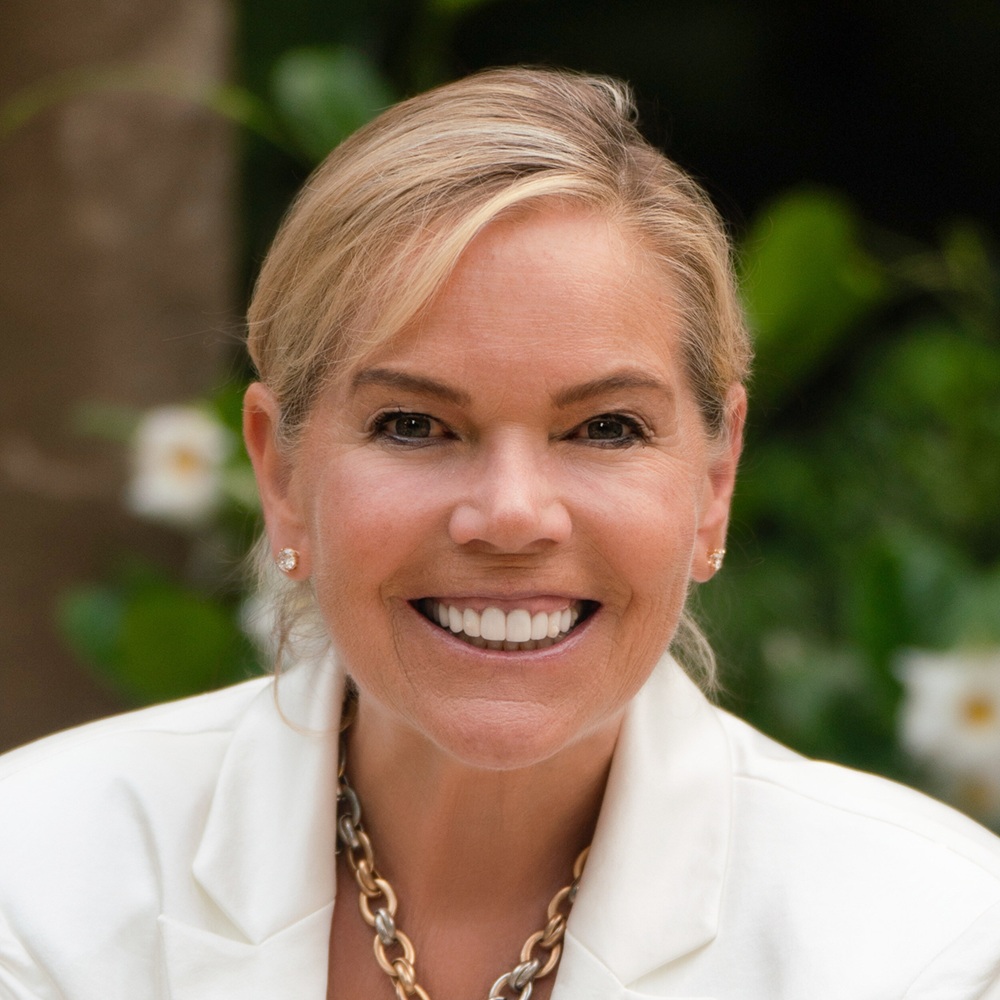Glass-Half-Empty Retirement Outlook? Here’s Some Advice
Three financial advisers who specialize in retirement income planning offer some guidance aimed at trying to ease the concerns of soon-to-be retirees.


Profit and prosper with the best of Kiplinger's advice on investing, taxes, retirement, personal finance and much more. Delivered daily. Enter your email in the box and click Sign Me Up.
You are now subscribed
Your newsletter sign-up was successful
Want to add more newsletters?

Delivered daily
Kiplinger Today
Profit and prosper with the best of Kiplinger's advice on investing, taxes, retirement, personal finance and much more delivered daily. Smart money moves start here.

Sent five days a week
Kiplinger A Step Ahead
Get practical help to make better financial decisions in your everyday life, from spending to savings on top deals.

Delivered daily
Kiplinger Closing Bell
Get today's biggest financial and investing headlines delivered to your inbox every day the U.S. stock market is open.

Sent twice a week
Kiplinger Adviser Intel
Financial pros across the country share best practices and fresh tactics to preserve and grow your wealth.

Delivered weekly
Kiplinger Tax Tips
Trim your federal and state tax bills with practical tax-planning and tax-cutting strategies.

Sent twice a week
Kiplinger Retirement Tips
Your twice-a-week guide to planning and enjoying a financially secure and richly rewarding retirement

Sent bimonthly.
Kiplinger Adviser Angle
Insights for advisers, wealth managers and other financial professionals.

Sent twice a week
Kiplinger Investing Weekly
Your twice-a-week roundup of promising stocks, funds, companies and industries you should consider, ones you should avoid, and why.

Sent weekly for six weeks
Kiplinger Invest for Retirement
Your step-by-step six-part series on how to invest for retirement, from devising a successful strategy to exactly which investments to choose.
Americans nearing retirement worry they’ll never be able to stop working. It’s a headline we’ve seen repeatedly over the last three decades. Notably, the sense of pessimism today is at its highest point in 10 years. According to a recent Gallup survey, nearly 60% of non-retirees don’t think they will have enough money for a comfortable retirement.
Blame inflation, higher interest rates and the possibility of a looming recession for at least some of this anxiety. Even the anticipation of a dismal economic forecast can concern retirement savers whose investment portfolios rely heavily on stock returns, especially for those trying to retire within the next decade.
How do those with a glass-half-empty view of retirement manage their expectations and investments?
From just $107.88 $24.99 for Kiplinger Personal Finance
Become a smarter, better informed investor. Subscribe from just $107.88 $24.99, plus get up to 4 Special Issues

Sign up for Kiplinger’s Free Newsletters
Profit and prosper with the best of expert advice on investing, taxes, retirement, personal finance and more - straight to your e-mail.
Profit and prosper with the best of expert advice - straight to your e-mail.
Even if you can’t change your financial outlook, there are concrete steps you can take right now to boost your retirement confidence. I spoke with three top fiduciary financial advisers who specialize in retirement income planning. Here’s how they position their soon-to-be retiree clients to help ease their concerns.
Hyper-personalized planning and cash-flow ‘stress testing’
People of all ages worry about retirement due to uncertainty. Older workers, with a shorter time horizon, have more at stake and less time to course-correct. But even midcareer workers saving aggressively for the future can feel anxious about rising tax rates, Social Security's solvency and stock market performance.
To combat these uncertainties, fiduciary financial advisers, including Jessica Searcy, CEO and president at Searcy Financial Services, recommend creating a hyper-personalized retirement plan that delves into every worst-case-scenario aspect of your financial future. This comprehensive approach includes projections that assess your potential income, expenses and the impact of different scenarios or economic stressors to evaluate your retirement readiness.
“We are often able to allay these fears by projecting the future anticipated cost of retirement and looking at the probability of success,” Searcy says. “When the probability of success is too low for comfort, then we can focus on finding creative ways to solve the problem.”
For instance, consider how the fear of rising health care costs can be a threat to a future retiree's financial security. Some solutions may involve funding a health savings account (HSA), which is similar to having a tax-advantaged IRA account specifically for medical expenses; exploring nontraditional coverage options; or even considering an early retirement abroad that might allow you to leverage another country's health care system before Medicare kicks in.
In today's volatile markets and uncertain economic climate, financial advisers are increasingly advocating for stress testing, which illustrates clients’ worst-case scenarios to provide an understanding of their preparedness. Tyler Moore, CPA/PFS, CFP® at Timberchase Financial in Alabama, emphasizes, “We are doing more stress testing and what-if scenarios, such as higher inflation or a market downturn when reviewing financial plans and projections side-by-side with clients.”
Therefore, the first step for those who feel unprepared is to start planning. Astonishingly, there is a significant disparity between the number of individuals who acknowledge the importance of retirement planning and those who actually take action, as revealed by a study conducted by AARP. This research underscores the need for employers to provide access to personalized financial advice to their workforce. Moreover, individuals nearing retirement should strongly consider seeking one-on-one, personalized advice from an unbiased fiduciary fee-only adviser.
Those soon to retire still need their portfolios to grow
As you approach and transition into retirement, a common rule of thumb advises adopting a more conservative investment strategy to safeguard your hard-earned assets. Preserving capital becomes a priority, but it's crucial to recognize that playing it too safe carries its own set of risks, especially when your portfolio needs to generate income to sustain your desired retirement lifestyle.
Marc Lieberman is a Chartered Financial Analyst and personal financial adviser based in Tiburon, Calif. He stresses the importance of this concept especially for those in their 50s and beyond, stating, “The average person will spend 30 years in retirement. It is important to remember that one does not simply stop investing during their retirement years.”
Over the past two years, it has become essential to look for growth opportunities that help counter the effect of inflation. “All this means is that your ‘bogey’ for required returns during retirement has likely gone up,” Lieberman says. “While some of those higher required returns can be met with higher yields on cash and bonds, stocks will likely remain an important third leg of your retirement investing strategy.”
How much of your portfolio should be in stocks will depend on different factors, not the least of which is your own comfort level and the quality of stocks you want to own. For example, dividend-paying stocks that have solid balance sheets can be a reliable growth strategy to help boost returns. Collaborating with an adviser can help you personalize your own asset allocation so that it aligns with your timing, your cash spending needs and your level of comfort around the idea that some of your money can be invested for growth.
Avoid unnecessary short-term mistakes
During my conversations with financial advisers, a consistent piece of advice emerged: As you approach the retirement finish line, the last thing you want to do is make avoidable mistakes in reaction to short-term trends.
Recently, we've witnessed a whirlwind of events — high inflation, soaring interest rates, simultaneous drops in bonds and stocks, a potential federal debt default and even a banking crisis. It's easy to get swept up in the excitement or succumb to the doom and gloom of the moment. However, it's crucial to recognize that the markets and economic cycles are in constant motion.
“We’ve discussed historical returns and economic conditions more frequently to remind clients that we have seen many of these things before and that we need to take a long-term view, not a short-term view,” Moore says.
That generally involves the challenge of resisting our emotions. “Remember, the stock market takes the escalator up and the elevator down,” Lieberman says. “Humans don’t like acceleration, which is why the down markets ‘feel’ so much worse than the up markets feel good. It is important to consider that the stock markets go up about two-thirds of the time and down one-third of the time.”
However, maintaining a long-term perspective doesn't mean sitting idly. There are still opportunities to be proactive and make strategic moves.
“For clients who we were already considering moving to a more conservative allocation in the near future because of their specific circumstances, we have considered accelerating this to take advantage of the depressed bond prices and high interest rates,” Moore says.
Take a break from big financial news of the day
What about those who are chronically worried about the future? Although it may seem counterintuitive, a way to boost your retirement confidence is to shift your focus away from the big financial news events of the day.
“Most people have concerns about things they can’t control — inflation, taxes, health care,” Searcy says. “By staying focused on the things that can be controlled, like savings rates, savings methods and spending, we can typically get to successful outcomes.”
These three advisers agree that the best course of action is to develop a solid cash-flow plan and a sound investment strategy and then stay the course, making minor adjustments along the way.
related content
- Why Are You Still Working?
- Four Steps to Help You Have a Comfortable Retirement
- Seven Habits for a Happy Retirement
- Will Savings Rates Go Up in 2023?
Profit and prosper with the best of Kiplinger's advice on investing, taxes, retirement, personal finance and much more. Delivered daily. Enter your email in the box and click Sign Me Up.

With more than 25 years in investor advocacy, Pam Krueger is the founder and CEO of Wealthramp, an SEC-registered adviser matching platform that connects consumers with rigorously vetted and qualified fee-only financial advisers. She is also the creator and co-host of the award-winning MoneyTrack investor-education TV series, seen nationally on PBS, and Friends Talk Money podcast.
-
 Dow Adds 1,206 Points to Top 50,000: Stock Market Today
Dow Adds 1,206 Points to Top 50,000: Stock Market TodayThe S&P 500 and Nasdaq also had strong finishes to a volatile week, with beaten-down tech stocks outperforming.
-
 Ask the Tax Editor: Federal Income Tax Deductions
Ask the Tax Editor: Federal Income Tax DeductionsAsk the Editor In this week's Ask the Editor Q&A, Joy Taylor answers questions on federal income tax deductions
-
 States With No-Fault Car Insurance Laws (and How No-Fault Car Insurance Works)
States With No-Fault Car Insurance Laws (and How No-Fault Car Insurance Works)A breakdown of the confusing rules around no-fault car insurance in every state where it exists.
-
 For the 2% Club, the Guardrails Approach and the 4% Rule Do Not Work: Here's What Works Instead
For the 2% Club, the Guardrails Approach and the 4% Rule Do Not Work: Here's What Works InsteadFor retirees with a pension, traditional withdrawal rules could be too restrictive. You need a tailored income plan that is much more flexible and realistic.
-
 Retiring Next Year? Now Is the Time to Start Designing What Your Retirement Will Look Like
Retiring Next Year? Now Is the Time to Start Designing What Your Retirement Will Look LikeThis is when you should be shifting your focus from growing your portfolio to designing an income and tax strategy that aligns your resources with your purpose.
-
 I'm a Financial Planner: This Layered Approach for Your Retirement Money Can Help Lower Your Stress
I'm a Financial Planner: This Layered Approach for Your Retirement Money Can Help Lower Your StressTo be confident about retirement, consider building a safety net by dividing assets into distinct layers and establishing a regular review process. Here's how.
-
 The 4 Estate Planning Documents Every High-Net-Worth Family Needs (Not Just a Will)
The 4 Estate Planning Documents Every High-Net-Worth Family Needs (Not Just a Will)The key to successful estate planning for HNW families isn't just drafting these four documents, but ensuring they're current and immediately accessible.
-
 Love and Legacy: What Couples Rarely Talk About (But Should)
Love and Legacy: What Couples Rarely Talk About (But Should)Couples who talk openly about finances, including estate planning, are more likely to head into retirement joyfully. How can you get the conversation going?
-
 How to Get the Fair Value for Your Shares When You Are in the Minority Vote on a Sale of Substantially All Corporate Assets
How to Get the Fair Value for Your Shares When You Are in the Minority Vote on a Sale of Substantially All Corporate AssetsWhen a sale of substantially all corporate assets is approved by majority vote, shareholders on the losing side of the vote should understand their rights.
-
 How to Add a Pet Trust to Your Estate Plan: Don't Leave Your Best Friend to Chance
How to Add a Pet Trust to Your Estate Plan: Don't Leave Your Best Friend to ChanceAdding a pet trust to your estate plan can ensure your pets are properly looked after when you're no longer able to care for them. This is how to go about it.
-
 Want to Avoid Leaving Chaos in Your Wake? Don't Leave Behind an Outdated Estate Plan
Want to Avoid Leaving Chaos in Your Wake? Don't Leave Behind an Outdated Estate PlanAn outdated or incomplete estate plan could cause confusion for those handling your affairs at a difficult time. This guide highlights what to update and when.